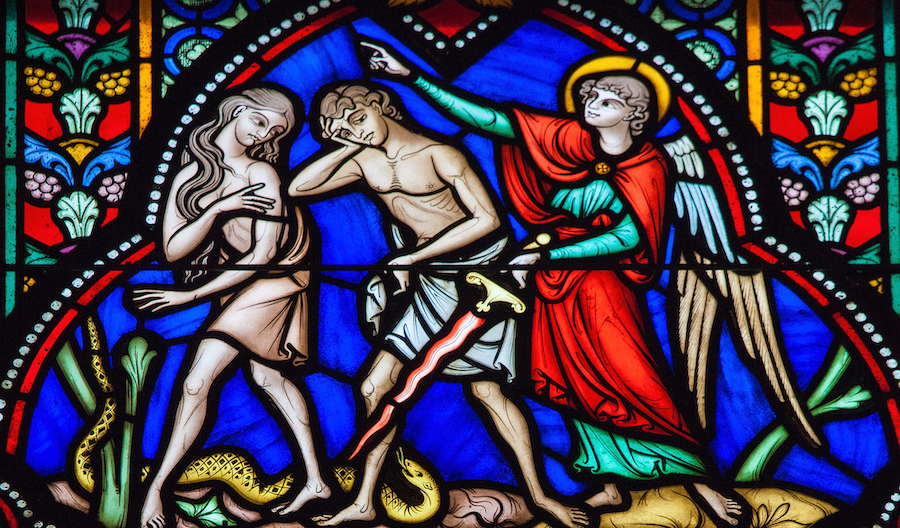Question:
When I was a Protestant, I never heard mention of “original sin.” We were told that each person is responsible for their own sins — and need not even worry about sin until we approached “the age of accountability” — usually said to be about the age of 10. Until then, we were told, people are in a “state of grace” — meaning that, if they died, they would go to heaven.
Now, as a Catholic, I hear original sin mentioned almost weekly and, it seems, we all (from birth on) are held responsible for Adam and Eve’s initial sin in the Garden of Eden — and if we die (kids, too) prior to some kind of salvific experience to erase it, we will go to hell. Please help me by explaining original sin more thoroughly. (Indiana)
Answer:
Actually, I am a bit surprised that you heard no mention of original sin during your years as a Protestant. The doctrine of original sin, first articulated precisely by Augustine in the fifth century, was popular with Protestant reformers, including Martin Luther and John Calvin.
The Catholic understanding is that original sin involves no personal guilt on our own part; it simply means that, as a consequence of the fall of our earliest parents, we have been weakened in our ability to resist temptation — we still possess free will, but we are born into the world with an inherited inclination to evil.
As the Catechism of the Catholic Church states, “Original sin is called ‘sin’ only in an analogical sense; it is a sin ‘contracted’ and not ‘committed’ — a state and not an act” (No. 404). As to your concern about children who die without baptism going to hell, that is not the belief of the Church.
In fact, in 2007, the Church’s International Theological Commission, with the authorization of Pope Benedict XVI, published a document that concluded explicitly that “there are theological and liturgical reasons to hope that infants who die without baptism may be saved.” God, after all, is reasonable; he created people to be happy and wants to bring us to heaven.
Question:
I am a wandering Catholic. I identify as a Roman Catholic, although I have not been to a Church service in quite a while. I have made excuses to myself and to Our Lord as to why that is. I have started reading the Bible and would like to know if the King James Version is accepted by the Church. (I have been trying to get to church, as it brings me peace. My reasons for not attending are varied, mostly health related.) (Onley)
Answer:
First, about the Bible. The King James translation was completed in 1611 and is written in a lofty literary style. Like Catholic versions, its New Testament section includes 27 books. But in the King James version (as well as in other Protestant editions), the Old Testament has only 39 books while Catholic versions have 46 books.
The seven additional books in Catholic editions are: Tobit, Judith, First and Second Maccabees, Wisdom, Sirach and Baruch. (In addition, Catholic Bibles also include some sections of Esther and Daniel that are not found in Protestant Bibles.) These additional books are considered by the Catholic Church as inspired by the Holy Spirit.
Having said that, the Catholic Church does not forbid anyone from reading any version of the Bible. I am happy that you have begun to read the King James Bible and believe that you will find inspiration in doing so.
At some point, though, you might want to obtain a version called the New American Bible. Last revised in 2011, this is the version used for the scriptural readings at Catholic Masses.
Now, about your being a “wandering Catholic.” I hope that when your health permits, you will decide to return regularly to Mass. That is the way to be most faithful to Jesus and the surest help for living his way.
Jesus told us at the Last Supper that he wanted his followers to come together regularly to celebrate their faith, to recall his life and teachings and to be nourished with his body and blood.
It may be that legitimate health concerns make it unwise right now for you to go to church, especially during the current pandemic. If that is the case, would you consider calling your parish priest and asking to be placed on the Communion list for home visitation?
That way, you will be able to have your confession heard and to feel the peace and the strength of Jesus in the Eucharist.

